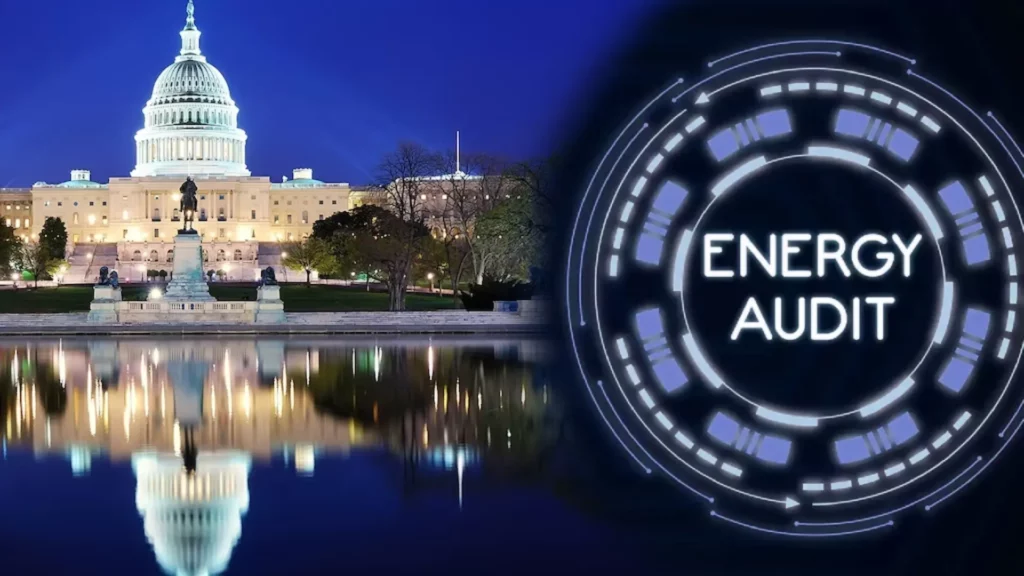Washington DC Energy Audit
In Washington DC, a city that stands at the forefront of policy and change, the concept of energy efficiency has gained immense traction. This guide aims to provide a thorough understanding of energy audits within the unique context of Washington DC Energy Audits.
The goal is to equip homeowners, business owners, and policy-makers with the knowledge and tools necessary to navigate the world of energy efficiency, ultimately leading to more sustainable living, significant cost savings, and a reduced environmental footprint.
Understanding Energy Audits
- Comprehensive Overview of Energy Audits
An energy audit is a thorough examination conducted by a qualified auditor to evaluate energy use in residential or commercial settings. The process involves a meticulous inspection of the premises to identify how energy is being utilized, spotlight areas of energy wastage, and suggest potential improvements.
- The Importance of Washington DC Energy Audits
Washington DC Energy Audit is essential for the city's diverse energy landscape. Historical buildings with outdated systems and modern structures with advanced technologies present challenges.
Audits reduce the city's carbon footprint and help reach environmental goals, while also cutting costs for property owners and promoting sustainability.
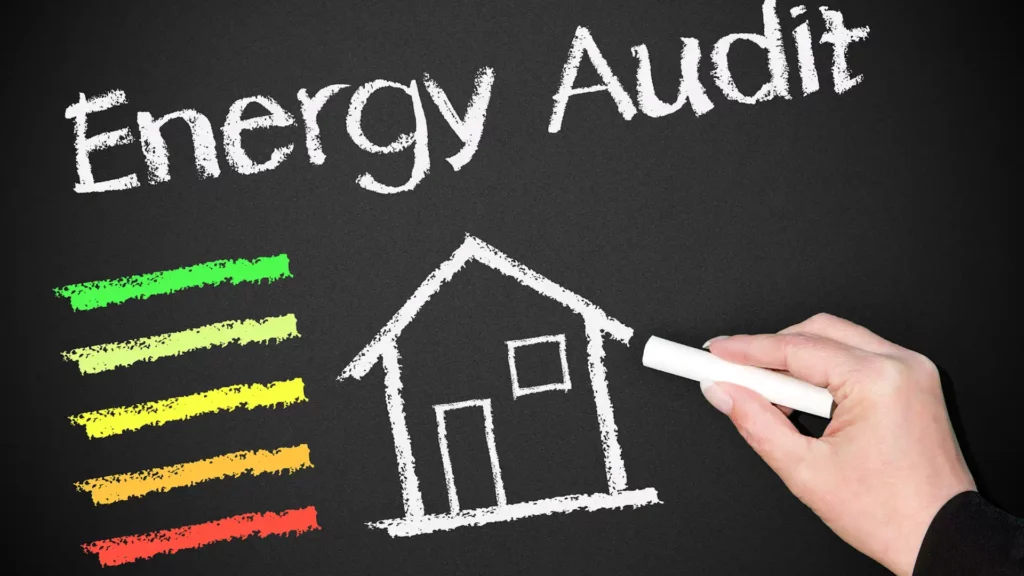
Step-by-Step Breakdown in Washington DC Energy Audits
- Initial Consultation: The energy audit in Washington DC starts with a discussion between the auditor and client to understand specific energy concerns and gather preliminary data about the property.
- On-Site Evaluation: A detailed assessment of the property is conducted, focusing on HVAC systems, lighting, insulation, and the building's exterior, using tools like thermal imaging cameras.
- Data Analysis: The auditor analyzes energy usage patterns, compares them with benchmarks, and scrutinizes the building’s systems for efficiency.
- Reporting and Recommendations: A detailed report is prepared, offering tailored recommendations for both short-term and long-term energy efficiency improvements.
- Implementation Guidance: The auditor guides on implementing the recommended measures, including prioritizing actions based on impact and budget considerations.
- Follow-Up Assessment: After implementation, a follow-up assessment is conducted to evaluate the effectiveness of the changes and to make any necessary adjustments.
- Continuous Monitoring: The auditor may offer services for continuous monitoring of energy usage to ensure ongoing efficiency and to identify any new opportunities for savings.
- Education and Training: Clients receive education and training on maintaining energy efficiency and adopting sustainable practices in their daily operations or lifestyle.
- Utility Rebate Assistance: Assistance is provided in identifying and applying for relevant utility rebates or government incentives for energy-efficient upgrades.
- Long-Term Energy Planning: The auditor assists in developing a long-term energy management plan, focusing on sustainable practices and future-proofing the property against rising energy costs.
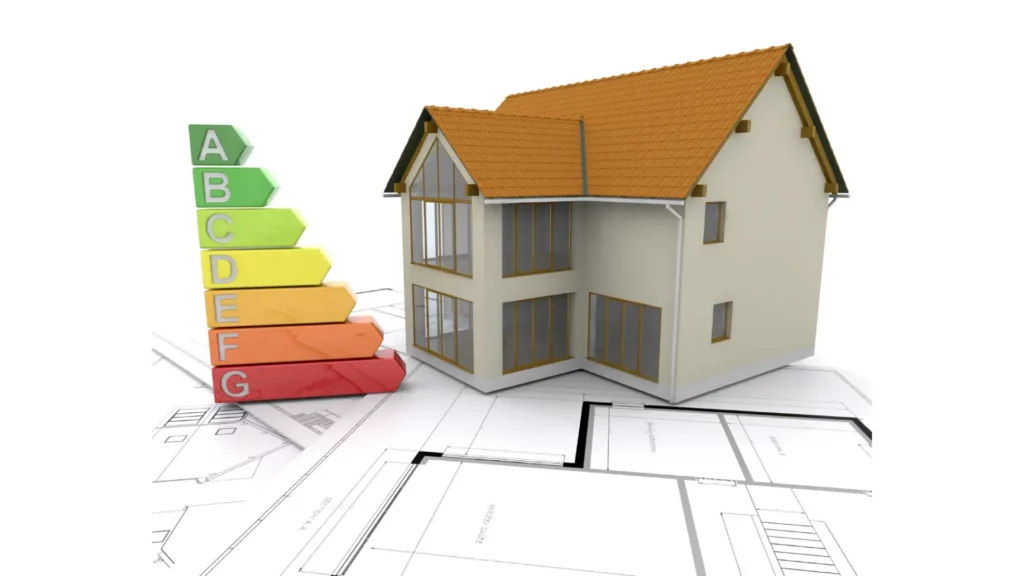
Essential Tools and Technologies
- Blower Door Tests
The blower door test is an essential tool for energy auditing. It involves using a powerful fan to lower air pressure inside a building, allowing outside air to flow in through cracks and openings. This helps identify areas where energy is being lost due to poor sealing. The test results are crucial for recommending improvements in air sealing and increasing energy efficiency in the home.
- Infrared Thermal Imaging
Infrared cameras visually show thermal differences in buildings. They identify areas lacking insulation and heat loss through the building envelope. This technology detects surface temperature variations, revealing issues like air leaks, moisture intrusion, and poor insulation.
- Duct Blaster Tests
Duct blaster tests gauge the tightness and efficiency of a building's ductwork system. Using a calibrated air blower, the duct system is pressurized to measure airflow and pressure, which reveals any leakage.
- Utility Bill Analysis
Energy auditors review historical utility bills to identify abnormal patterns and trends in energy usage, helping understand a building's consumption over time, and accounting for seasonal variations and occupancy changes.
This analysis reveals inefficiencies or malfunctions and serves as a baseline for measuring the effectiveness of energy-saving measures in an energy audit dc.
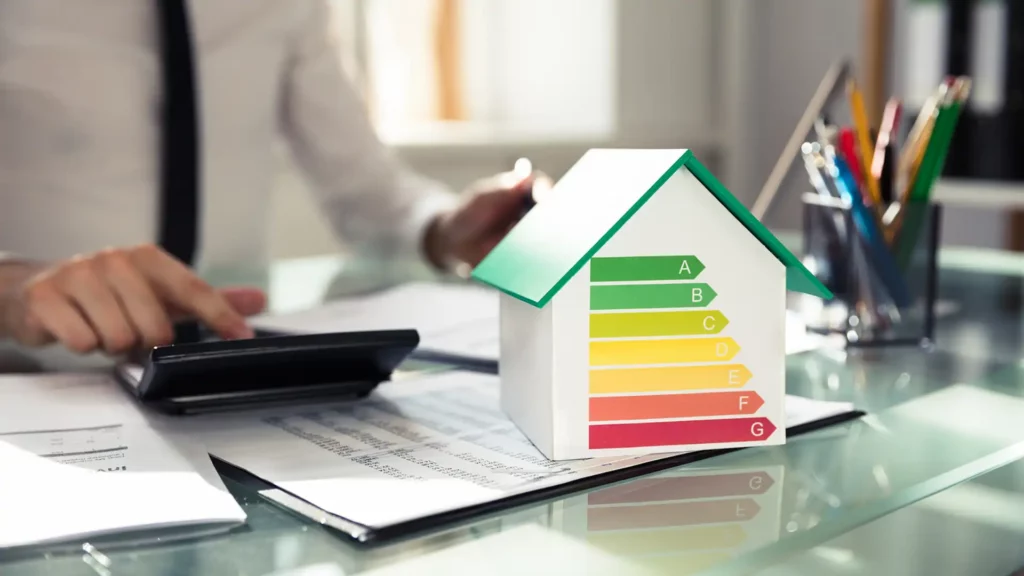
Advantages of Conducting a Washington DC Energy Audits
- Financial Savings: Energy audits in Washington DC identify areas of energy wastage like inefficient heating and cooling systems, resulting in substantial financial savings through reduced energy consumption and lower utility bills.
- Increased Property Value: Energy-efficient properties are in high demand in the real estate market. Properties with energy audits and improvements command higher market values and attract buyers and renters looking for lower operational costs and environmentally friendly features.
- Environmental Impact: Conducting an energy audit DC and implementing its recommendations reduces a property's carbon footprint, contributing to the fight against climate change and aligning with Washington DC's emphasis on environmental stewardship.
- Improved Comfort and Health: Energy audit DC can uncover issues affecting indoor comfort and air quality, such as poor insulation and air leaks. Addressing these issues enhances indoor climate consistency and identifies health hazards, thereby improving the well-being of occupants.
- Enhanced System Performance and Longevity: Energy audit DC often leads to system upgrades or maintenance, enhancing energy efficiency, and performance, and extending the lifespan of heating, cooling, and electrical systems.
- Compliance with Local Regulations: Conducting an energy audit in Washington DC ensures compliance with local energy efficiency regulations and standards, potentially avoiding legal issues and qualifying for tax benefits, rebates, or incentives.
Selecting the Right Washington DC Energy Audits
- Certifications and Professional Experience
When choosing an energy auditor in Washington DC, focus on their qualifications and experience. Look for auditors with certifications from reputable organizations like BPI or RESNET, indicating thorough training and adherence to industry standards.
- In-depth knowledge of Local Climate and Regulatory Environment
A knowledgeable auditor in Washington DC Energy Audit understands the local climate and regulations, allowing them to provide customized energy solutions and take advantage of financial incentives for efficiency improvements.
- Client Reviews, Testimonials, and Overall Reputation
Researching the auditor's reputation is vital. Check client reviews, testimonials, and case studies for satisfaction levels. Reviews show thoroughness, usefulness of recommendations, and professionalism during audits.
- Comprehensive Audit Approach and Reporting
Evaluate auditor's audits. Comprehensive audit includes HVAC, insulation, and lighting. Inquire about reports, identify issues, and offer recommendations, savings estimates, and guidance.
- Use of Advanced Diagnostic Tools
Ensure that the auditor employs advanced diagnostic tools and techniques, such as blower door tests, infrared imaging, and duct blaster testing. These tools provide a more accurate and comprehensive assessment of energy efficiency issues than a simple visual inspection can offer.
- Post-Audit Support and Guidance
Auditors can provide post-audit support like interpreting the report, prioritizing recommendations, and assisting in implementing improvements. This ongoing support helps ensure effective implementation of the recommendations.
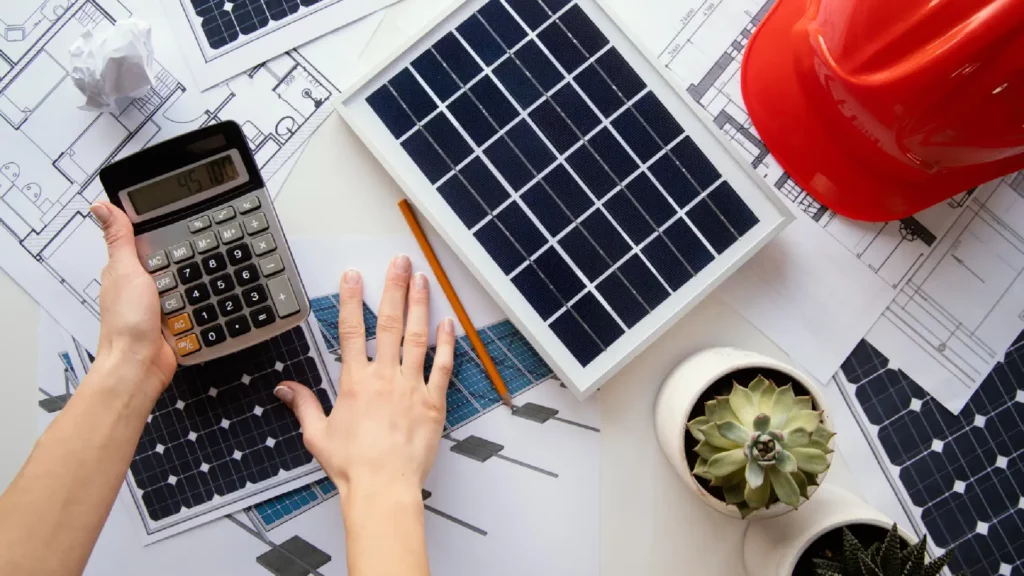
Home Energy Audit Washington DC: A Crucial Step Towards Efficiency
Embracing Home Energy Audits in the Heart of the Nation
Home energy audits in Washington DC are essential for homeowners who want to improve energy efficiency, reduce bills, and contribute to a sustainable city. Conducting a home energy audit in this capital helps align with the city's vision for a greener future.
Why a Home Energy Audit Washington DC is Essential
- Understanding Your Home’s Energy Profile: A home energy audit Washington DC provides a comprehensive assessment of your home's energy use. It's the first step in understanding how your home consumes energy and where there might be inefficiencies causing higher utility bills and unnecessary energy waste.
- Tailored Recommendations for the DC Climate: Washington DC's unique climate, with its hot summers and cold winters, demands specific energy solutions. An energy audit can tailor recommendations to your home’s specific needs, ensuring comfort throughout the year.
- Historic Homes and Modern Challenges: Many homes in DC have historical significance and may not have been built with energy efficiency in mind. A home energy audit can be particularly beneficial in these cases, providing insights into how to improve efficiency while preserving the home’s character.
What to Expect During a Home Energy Audit Washington DC
- Initial Assessment: The process begins with an auditor discussing your energy consumption patterns, any concerns you have, and what you hope to achieve through the audit.
- In-depth Analysis: Using tools like blower doors, infrared cameras, and ventilation testing equipment, the auditor conducts a thorough examination of your home. They'll assess areas such as insulation, windows, heating and cooling systems, and overall building envelope.
- Comprehensive Reporting: After the audit, you'll receive a detailed report outlining the findings. This report includes a list of recommended actions to improve your home's energy efficiency, prioritized by impact and cost-effectiveness.
- Guidance and Support: The best home energy audits in Washington DC go beyond just identifying problems. They provide actionable solutions and guidance on how to implement these changes, whether it’s through DIY projects or hiring contractors.
Maximizing the Benefits of a Home Energy Audit Washington DC
- Implementing Recommendations: The real value of a home energy audit lies in acting on its recommendations. From simple fixes like sealing air leaks to more significant changes like upgrading insulation or HVAC systems, each step can contribute to more efficient energy use and lower bills.
- Seeking Financial Incentives: In Washington DC, homeowners may have access to various incentives, rebates, or assistance programs to help offset the cost of making energy-efficient upgrades identified in the audit.
- Continuous Improvement: Energy efficiency is an ongoing journey. Regular check-ups and following up on the audit's recommendations can ensure your home remains efficient, comfortable, and environmentally friendly.
Washington DC Energy Audits: Conclusion
In summary, opting for a home energy audit Washington DC transcends mere cost savings and comfort enhancement. It represents a personal commitment to sustainability, aligning with the city’s progressive ethos.
As a Washingtonian, engaging in this process is not just about addressing the energy efficiency of your home, but also about participating in a collective effort towards a more sustainable future. By choosing to audit and improve your home’s energy use, you're contributing to the environmental well-being of the city and setting an example of responsibility and foresight.
This initiative is more than a practical decision; it's a reflection of a deeper understanding of our role in the broader context of environmental stewardship. It's about being part of a community that values progressive action and recognizes the importance of each individual's contribution to the city's overall energy goals. Embracing this journey offers not only the satisfaction of enhancing your living space but also the fulfillment that comes from knowing you're playing a part in creating a greener, more sustainable Washington DC Energy Audit.

